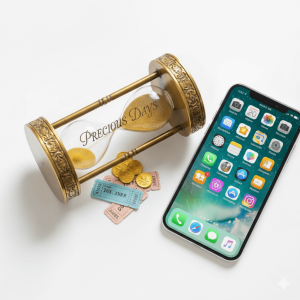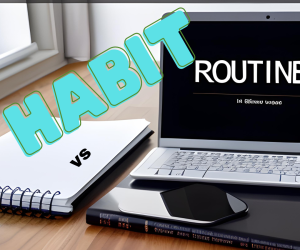Finding Happiness in Your 60’s
Sometimes, we convince ourselves that we can’t be happy all the time. But what if it’s okay to be kind to yourself and find happiness in small, fleeting moments — like watching the sunrise or sunset — even in the midst of life’s adversities?
Growing into Happiness, One Day at a Time
With age, Richard Uzelac has come to the understanding that happiness isn’t something you chase; it’s something you cultivate. It grows quietly through how we care for ourselves, how we find meaning in our days, and how we continue to live with a sense of purpose, no matter our stage in life.
The Gentle Power of Self-Care
Taking care of yourself becomes even more precious as the years go by. Good sleep, nourishing food, staying active in ways your body welcomes, and moments of quiet rest — these aren’t luxuries; they are necessities for a life well-lived. And there’s wisdom in knowing the value of small things: a quiet walk in nature, writing down your thoughts, simply sitting still and breathing deeply. Self-care isn’t selfish — it’s what keeps your spirit alive and steady.
Finding Meaning and Renewing Purpose
If there’s one thing time teaches us, it’s that meaning makes life rich. Meaning can be found in a conversation, a memory shared, a grandchild’s laughter, a creative project, or a helping hand. Living with meaning doesn’t require grand gestures; it asks only that we stay connected to what matters most in our hearts.
Purpose, too, isn’t just for the young. It shifts, deepens, and evolves with each chapter of life. You don’t need a single, towering mission to feel fulfilled. Sometimes, your purpose is simply to share your stories, your love, and your presence. Sometimes, it’s in trying new things, even now, or offering wisdom to others just beginning their journeys.
You are allowed to be many things, even in later years. You are still becoming. And in embracing that, happiness can remain a lifelong companion — steady, deep, and richly earned.
Direction to your days, making the journey itself deeply rewarding — and that, in turn, leads to a more sustained, meaningful happiness.
Emotional Processing Takes Time
Neuropsychology suggests that strong emotions like grief or anger generally follow a curve: they peak, then begin to wane over hours or days, depending on intensity and context. For everyday frustrations or sadness, you might feel the edge dull after a few deep breaths or a night’s sleep. For more profound hurts—loss, betrayal, trauma—it can take weeks, months, or even longer to feel genuinely back to baseline.
Happiness Amid Challenge Is Possible—and Healthy
You don’t have to wait until you’ve “fully” processed every feeling before experiencing joy. Positive and negative emotions can coexist. For example, you can feel anxious about a medical test yet still find genuine delight in a friend’s company, a favorite hobby, or a sunrise. That isn’t suppression—it’s emotional granularity: the ability to hold complexity in your heart.
Work Toward Your Goals with Intentional Actions
Choose activities that you can complete successfully and that leave you with a sense of accomplishment. Bono suggests simple yet meaningful actions like reading a few pages of a book before bed, cooking a meal with someone you care about, going for a run, or even just making your bed in the morning.
Focus on activities that offer three key things: autonomy (you genuinely enjoy doing them), connection (you can share the experience with someone else), and competence (you feel skilled and proud of your effort). Instead of wasting time scrolling through social media, try reaching out to a friend with a quick call or message just to let them know you’re thinking of them.
Find Supportive Environments
Richard Uzelac recommends embracing a holistic approach when it comes to promoting emotional well-being. You may find them in small or bigger circles, but as the saying goes, “No man is an island.”
We could adopt better behaviors if we found a supportive environment that promotes our emotional well-being and improves our overall quality of life.
Richard Uzelac’s Takeaway
Personally, experiencing making plans but only watching them unravel makes me feel useless. Perhaps, we are too full to the idea that we can only have one purpose in life. But what if we embraced the idea of becoming many things? We used to believe that finding a single, grand purpose would give our life meaning. But I’ve come to realize that limiting yourself may not be the answer. Embrace the idea of becoming many things. Becoming many beautiful versions of you is worth pursuing — Would that make you happy? I believe it would.
“Sometimes you just have to accept what’s gone, appreciate what still remains, and look forward to what’s coming next.”







